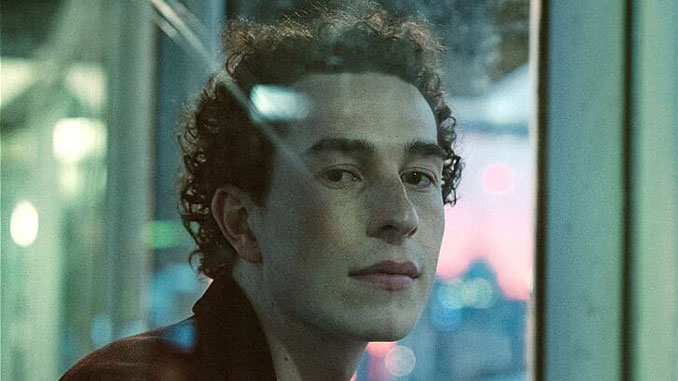 On paper, Rupert Bevan’s Darling Boy reads as a fairly typical affair for Fringe. Largely autobiographical, it promises a 60-minute deep-dive into Bevan’s personal neuroses peppered with witty commentary and occasional audience interaction.
On paper, Rupert Bevan’s Darling Boy reads as a fairly typical affair for Fringe. Largely autobiographical, it promises a 60-minute deep-dive into Bevan’s personal neuroses peppered with witty commentary and occasional audience interaction.
Pretty stock-standard stuff, one might think. Yet, despite the threat of slipping into the expected, Darling Boy manages to accomplish something wholly original.
Returning after a sold-out run of shows earlier this year, this season of Darling Boy is shrouded in much fanfare. In the close quarters of The Butterfly Club, we are introduced to Bevan as he navigates another disappointing night in a crowded CBD club.
Bevan’s talents as a physical performer are on full display as he is poked, prodded and pushed from one side of the dancefloor to the other in a tangle of flailing limbs and body contortions. Since moving to Melbourne from Brisbane for a degree in English Literature, Bevan has become the token ‘gay best friend’ of a mostly female friendship group. On nights out in straight clubs, he faces overt homophobia from men in line and covert homophobia in the form of misguided ally-ship from these friends.
When he eventually makes it to a queer venue – or rather a straight venue masking as a queer one – he faces a new set of problems provoked by his rampant loneliness. It is pretty clear early on that Bevan is a hopeless romantic struggling to map his earnest desire for love against a queer dating scene that is either overly sexualised or emotionally superficial. There is a risk of recycling homophobic tropes in demonising these aspects in this way.
Thankfully, Bevan seems aware of this. Early scenes are peppered with quick glimpses into a Gender Studies class where ideas of ‘homonormativity’ and internalised homophobia are introduced to complicate any didacticism. How can Bevan separate his desire for romantic love from heterosexual ideals of how love is expressed or experienced? Can he find a way to fulfil his personal desires without simply retrofitting a conservative notion of that desire onto his homosexuality?
These are ideas that distinguish Darling Boy from a litany of similar Fringe shows, and the show could benefit from delving deeper into them. At times, Bevan’s script slips into furthering the didactic understanding of gay desire that it critiques. Yet, for every possible misstep there are a number of arresting and refreshingly original moments that show Bevan unafraid to make himself appear unlikeable.
At key moments, his loneliness develops into a self-serving, even narcissistic, desperation. Unsympathetic to his friends and regressive, even judgmental, of any form of homosexual desire different to his own, Bevan offers an honest portrayal of an imperfect nineteen-year-old trying and struggling to connect.
At the beginning of the show, this struggle is centred around his queerness. By the end, it has turned to also include imperfect attempts to connect to his mother and father. Without spoiling the show, it is in the portrayal of moments between his father that Bevan’s writing proves most affecting. The mother, often relegated to functioning purely as a comedic beat or silent device, is contrastingly underdeveloped.
It is a surprising irony that Bevan’s father figure, despite having less than four lines, seems better characterised than his mother who is given many more. Still, simple tech and lighting shifts – Bevan sending a text message voicemail in dim lighting or spot-lit while hearing a heart-wrenching monologue via voiceover – combine to sharpen the emotional acuity of the show’s climax and endear us to his family.
As dramaturg and director, Lucy Rossen is perfectly attuned to the talents of her performer and the subtle emotional and comedic beats of the script. In blocking, Rossen makes the most of Bevan’s unbridled energy and athleticism, shooting them from one side of the stage to the other and even into the audience in perfect complement to important emotive, or plot-driven moments.
As the show begins to resolve the grey areas of Bevan’s acerbic personality, it comes to a restrained, if a bit simplistic, end. Yet, with Darling Boy, Bevan and Rossen have constructed a tightly wound and well-rehearsed show that sneaks in a quiet emotional payoff in-between, well-observed witticisms. Though the show’s title is never explained, there is something more than ‘darling’ about this heart-warming production.
Darling Boy
The Butterfly Club, 5 Carson Place, Melbourne
Performance: Monday 17 October 2022
Season continues to 23 October 2022
For more information, visit: www.melbournefringe.com.au for details.
Image: Rupert Bevan presents Darling Boy (supplied)
Review: Guy Webster
